Ranking the 40 best campaigns selected from their worldwide winners across 2023, the winners of the Global SABRE Awards had a clear theme: championing diversity, equality and inclusion. WARC’s Genevieve Silk takes a look at five campaigns that challenged discrimination and advocated for inclusivity.
The Global SABRE winners have just been announced and among this year’s winners are a host of campaigns dedicated to diversity, equality and inclusion. In addition to an education initiative to close the digital gap in Indonesia’s future workforce and a campaign that pushed for gender equality in sport, a number of winners ran bold and innovative campaigns to tackle discrimination and champion inclusivity.
Telling another’s story
Hate crimes are sadly becoming more prevalent across the globe, with Brazil in particular witnessing an unprecedented surge in the promotion of Nazi ideology over the last four years. The number of (known) neo-Nazi cells rocketed from 75 in 2015 to 1,117 in 2022. Moreover, in the first half of 2022, online hate crime rose by nearly 70%, directed towards a wide range of social groups including people belonging to Indigenous, Black and LGBT+ communities.
International organisation UNESCO refused to turn a blind eye to the growing violence and discrimination and turned to the ever-dwindling number of people who lived through one of the world’s most terrible eras of hate and persecution. Holocaust survivors shared heart-wrenching accounts of discrimination and cruelty before revealing that the tales they told were not their own from the 1940s but were instead the stories of Brazilians who had experienced hate crimes in the 21st century. UNESCO’s campaign The Last Survivors, through Cappuccino Sao Paulo and Weber Shandwick Sao Paulo, reached 200 million people organically and Brazil’s Secretary for Education pledged to incorporate tackling hate into the school curriculum.
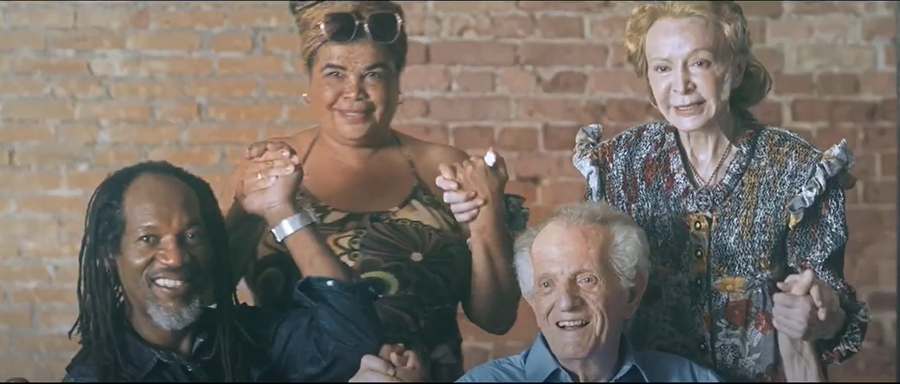
Feeling like you belong
Sadly, one of the knock-on effects of the COVID-19 pandemic was a surge in anti-Asian sentiment, with incidents of hate directed towards those of Asian origin in Canada increasing by up to 700% in some cities. But anti-Asian racism did not begin with COVID-19, instead the pandemic-induced increase in hate only exacerbated the existing feeling among Asian Canadians that they did not belong in Canadian society. Our names are often the first thing we tell other people about ourselves, yet Asian Canadians are frequently pressured to use an anglicised name rather than their real name – a change that is symbolic of a loss of identity and a lack of acceptance. And the squiggly red line found under many Asian names in word processors only serves to further drive home the feeling of not belonging.
Elimin8Hate, an anti-racism organisation, set out to tackle microaggressions around Asian names by working with Microsoft to build a custom dictionary containing over 8,000 unique names from across Asia. The Reclaim Your Name campaign, by Citizens Relations Toronto, then called on Asian Canadians to add their own names to the dictionary to expand the databank and captured the reactions of several Canadians as they saw their name without red squiggle for the first time. With 208 media placements generating over 91 million impressions, the campaign led to hundreds of dictionary downloads.
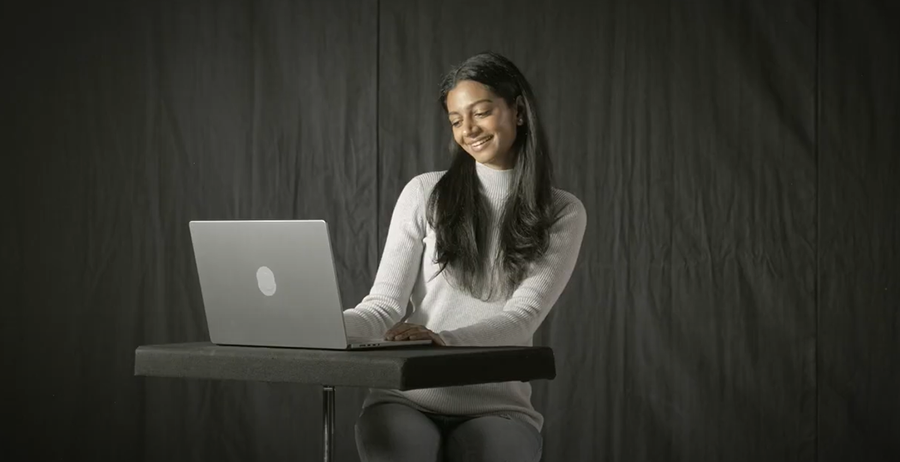
Sparking the conversation
Hate is an ever-present, yet seldom discussed, topic in another aspect of Canadian life: the much-loved sport of ice hockey. While one of the world’s most multicultural countries, Canada could be described as a mosaic rather than a melting pot, with many people firmly in denial that racism ever happens – least of all in its revered national sport.
Since beer brand Budweiser has a long history of supporting all levels of hockey as well as championing diversity within the sport, it felt a moral obligation to speak up and spark conversation about racism in hockey. Its #TapeOutHate campaign, through Veritas Communications Toronto, drew inspiration from a crucial piece of hockey equipment: the tape used to protect hockey sticks from damage. Budweiser produced rolls of tape with messages of defiance and declarations of allyship to the BIPOC hockey community and released a video designed to force the media and fans to confront the reality many people face in hockey. #TapeOutHate trended organically on Twitter within hours of launch and the hockey tape rolls sold out after only six hours.
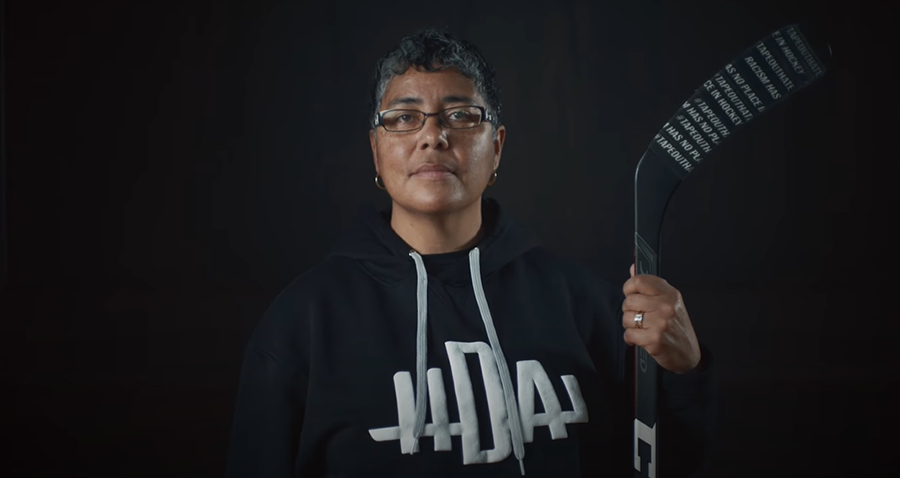
Discrimination by omission
Not all discrimination is hate crime and abusive language. Often it is the omission of a particular group of people from a data set. And, when that data set is in the healthcare sector, it can cost lives. Black and Hispanic people in the USA have 25% higher mortality rates for life-threating skin conditions like cancer. Part of the reason: under 6% of image-based search results show what skin conditions look like on darker skin, resulting in Black and Hispanic people being less likely to be seen by a dermatologist and in misdiagnoses once they are.
Determined to address the barriers to the proper diagnosis and treatment of skin conditions, skincare brand Vaseline created See My Skin: a first-of-its-kind online platform designed to search skin conditions exclusively on darker skin. Not only could people of colour see accurate examples of what certain conditions look like on skin similar to their own, they could also be referred directly to dermatologists who would understand their skin. Within two weeks, the platform received 6,000 visits and the campaign, through Edelman, increased the number of people seeking dermatological care by 1,430.
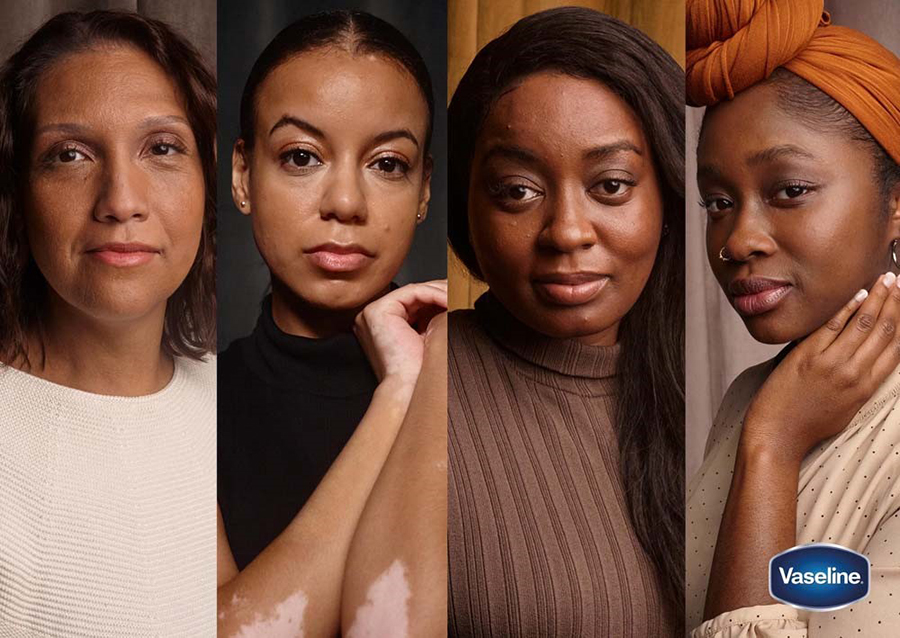
Inclusivity knows no gender
In today’s world, consumers are leaning more and more towards brands who not only preach inclusivity but practise what they preach. As a strong supporter of the LGBT+ community, UK airline Virgin Atlantic responded to requests from crew members to take a gender-neutral approach to their uniforms. Having already lifted its previous ban on visible tattoos and men wearing make-up, Virgin Atlantic firmly embraced the attitude that clothes have no gender and launched a campaign, through Tin Man London, to refresh its striking Vivienne Westwood uniforms.
The airline showcased its new take on the classic red uniform with its Runway on a Runway – a fashion photo shoot on a disused airstrip – and clearly demonstrated its allyship to the gender non-conforming community by introducing pronoun badges, updating its ticketing systems to accommodate non-binary passengers, and providing mandatory inclusivity training. The campaign generated over 550 pieces of coverage and led to a 20% increase in the perception of Virgin Atlantic as the most inclusive airline.
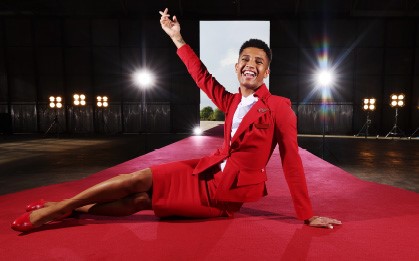
Celebrating diversity
As the world we live in becomes ever more diverse and multicultural, brands too have their part to play in celebrating our differences and condemning those who seek to divide us. In the words of long-time peace activist William Sloane Coffin: “Diversity may be the hardest thing for a society to live with, and perhaps the most dangerous thing for a society to be without.”

